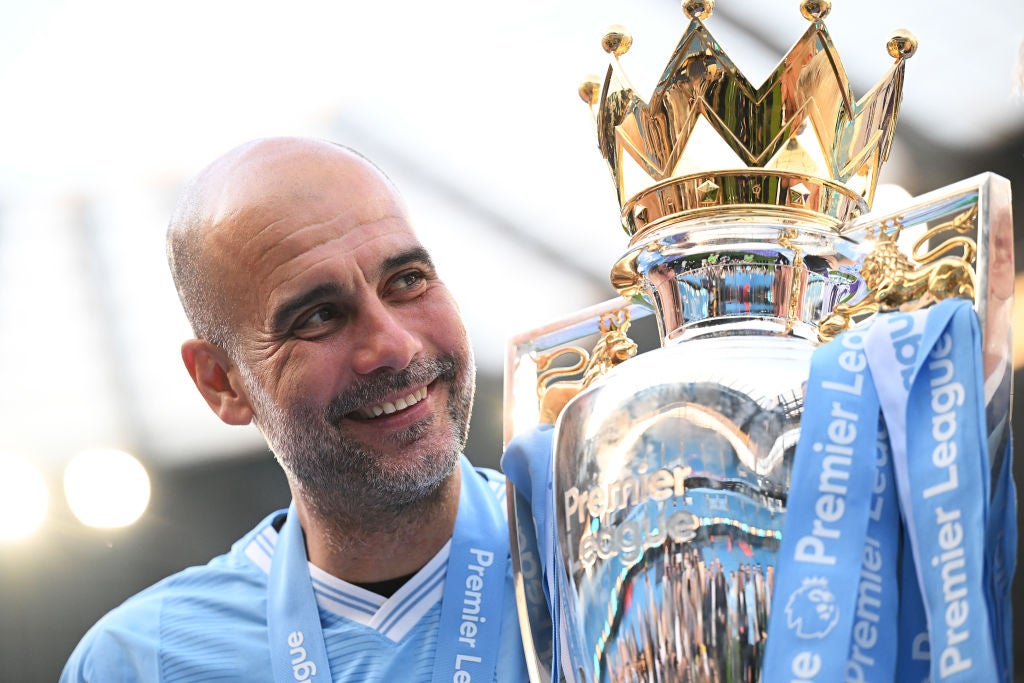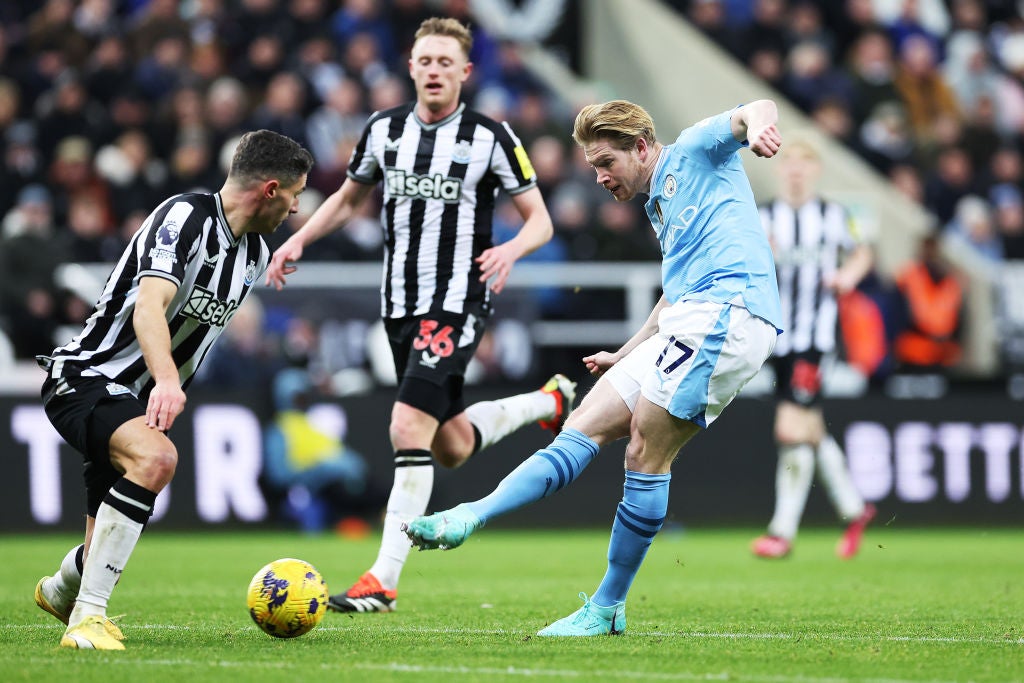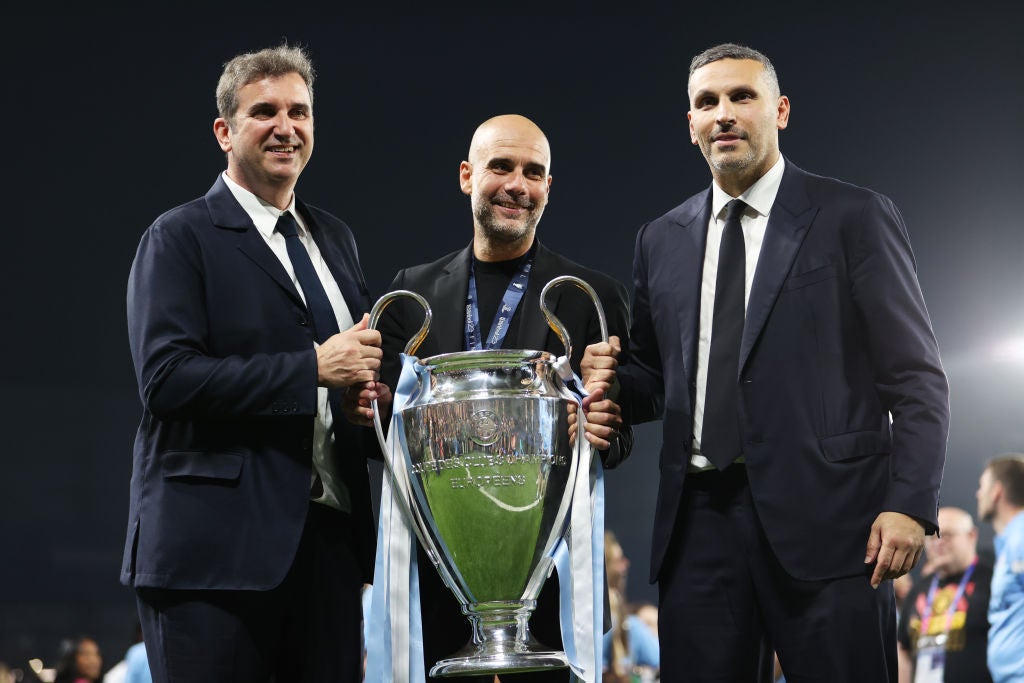For many in the Premier League, Manchester City’s latest case was a shock: it was “a decisive battle in the war for the future of football”.
That’s the only conclusion many executives can come to after weeks of research into the underlying circumstances of this latest crisis. That’s why there was an initial calm when Time broke the story of City’s legal action against the Premier League on Tuesday, even as the public backlash sparked anger among many. Everyone in the competition has known this for months. It’s really something that has been building up for years, another case that serves as a sifting through so many gaming problems, in addition to the 115 pending indictments for alleged violations of cost control rules. City stressed that they were not at fault there. The whole story reaffirms the most important issue, namely the importance of state ownership as experienced by Sheikh Mansour in Kota.
This case is quite difficult on the surface. City challenges Related Party Transactions [APT] rules, which means any commercial deals with related parties must be submitted to an independent panel to determine whether the deal has “fair market value”. If successful in the challenge, this could mean that any entity associated with the UAE can do whatever deal they want with the City, without independent assessment.
While the implications of the City’s success in this regard are clear, this legal challenge actually means much more than that. It is about tearing apart the structure of the game, and the spirit of “competitive cooperation” on which it is based. Frankly, City signed a Premier League agreement where every decision required a majority of 14 out of 20 votes, and this is what the owners agreed to. However, they have now decided that this should not apply to them and are seeking the strategy most favored by the richest people: burdening the British legal system with more money than your opposition. And no country has more money than the country that controls up to 9 percent of the global oil economy.
The simplest way to think about this is that it could change the structure of the game more drastically than Super League.
It also reflects the fundamental problem of allowing states – and especially autocratic states – to own football clubs. There are so many warnings contained in one story. A system that relies on rules is being challenged by parties accustomed to simply setting their own laws. How can sports bodies be expected to regulate state actors, especially when they have geopolitical ties to the league’s home government? Richard Scudamore’s era in the Premier League has a lot to answer, as so many different questions have emerged from the years gone by.
Before you even get to the very difficult question of trying to regulate state ownership, there is the very difficult question of trying to condition competitive balance in a global sport like football. The Premier League is in the midst of a debate over the best system, which will be debated at Thursday’s AGM. Any competition should seek to facilitate as many clubs as possible winning, while ensuring they are not put at financial risk while various self-interested forces try to exert their influence. This is very difficult to navigate. The real solution is a proper redistribution of the vast amount of money and talent that exists in the sport, but this requires difficult negotiations where people actually think about the long-term welfare of the sport. The easy alternative that is always put forward is “investment”. The problem is that leaving the game up to the luck of the person investing, will actually only make the existing problem worse.

These problems become unsolvable if countries with essentially unlimited wealth just give them whatever they want. What will the Premier League become?
This is where the latest case that occurred in the City has brought so many problems, as well as showing the next level of complexity in efforts to regulate state ownership. It is very difficult to clarify the blurred lines between companies and the state in a legal structure where the royal family can take over anything. One executive’s argument was that “at the end of the day, it all comes from the same money pool.” Four of City’s main sponsors have links to the UAE. The APT regulations are an attempt to address some of these issues.
The City’s 165-page legal document attempts to use familiar arguments to say they were victims of “discrimination against Bay area property”. The fallacy here is that the nature of ownership raises a much more complicated question. There is a big difference between a commercial deal with a company that has shareholders and a deal with a state entity that has no such obligations.
This is where their case may weaken, as Newcastle United is the only other Premier League club under similar ownership. These regulations have even been adopted as a direct consequence of the PIF takeover, but they have not yet been involved in the litigation process. Newcastle have sent a letter of support, but this is considered to have minimal evidentiary value, and they are instead just watching and waiting.

Regarding City’s reasons for doing this, many in the Premier League see it as a “backlash” regarding the 115 allegations. It should be emphasized that the challenged regulations are different from the regulations proposed in the long-term investigation. There is also the more relevant fact that City’s entire empire is built on sponsorship deals covered by these rules. There is an immediate interest in challenging them. It’s all still in a wider context, where it feels like the Premier League – and perhaps the wider game – is building to this existential moment.
This has raised wider questions within football, about how this fits into “sportswashing”. The reality is that the concept the phrase is intended to encompass is never as simple as “PR” or even the local market. The city’s owners want to build a global entity that represents Abu Dhabi worldwide, which is in line with the country’s ambitions in the developing world.
They want to go beyond the Premier League, as this case illustrates. City chief executive Ferran Soriano says so himself in his book, where he talks about how his only interest is his own club. It’s hard not to remember another sentence from the Catalan player, in an email released on Football Leaks. This is what makes City threatened to become a “global enemy of football”. That’s the point we’re getting to. Regarding sports washing and the issue of state ownership, there is clear symbolism in a club owned by a senior aristocrat from an autocracy who complains about the democratic system.

That system is now under threat. As for what follows, the Premier League feels their case is “legally valid” under English law, but there are still clear concerns. The City is optimistic and paying attention to every legal element as would be expected from a legal team costing tens of millions. A good lawyer can win any case.
It’s hard not to see all this as something grim for the game, and reflective of a new era. The impact could also go beyond the way the Premier League is played. Maybe it depends on whether it’s played. Many clubs are already wondering whether there is any point in continuing the competition if City wins. Could they consider withdrawing from the Premier League and joining the English Football League, in 1992? Would City be more interested in the Super League, given their global aspirations?
This does not mean that this will happen, but the fact that this issue is being discussed shows how serious this case is.
Even if that doesn’t happen, this is how you kill your passion for exercise. It represents a historic fallacy in football that succumbed to forces they could never control.
#Man #Citys #case #Premier #League #attack #structure #football
